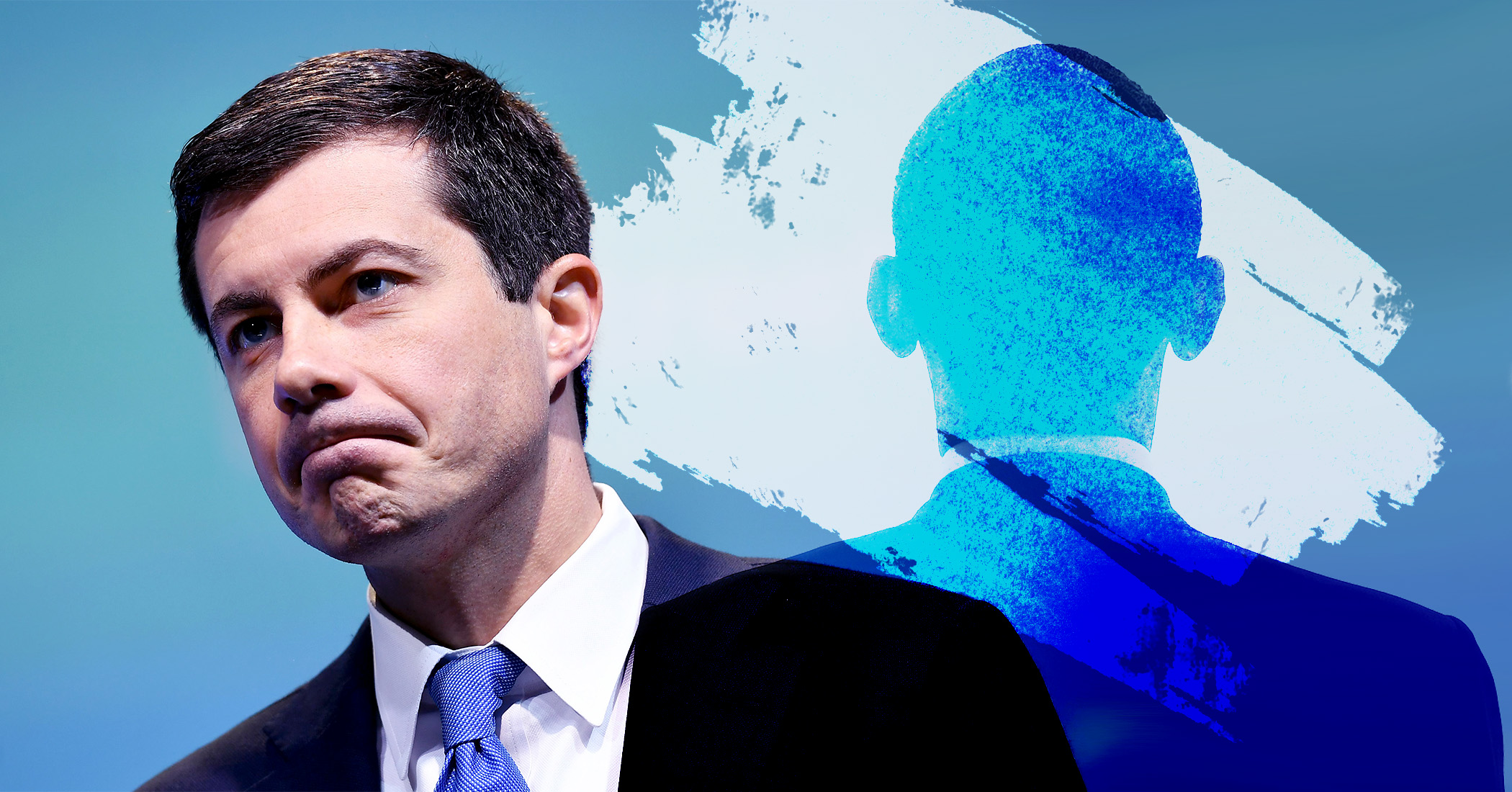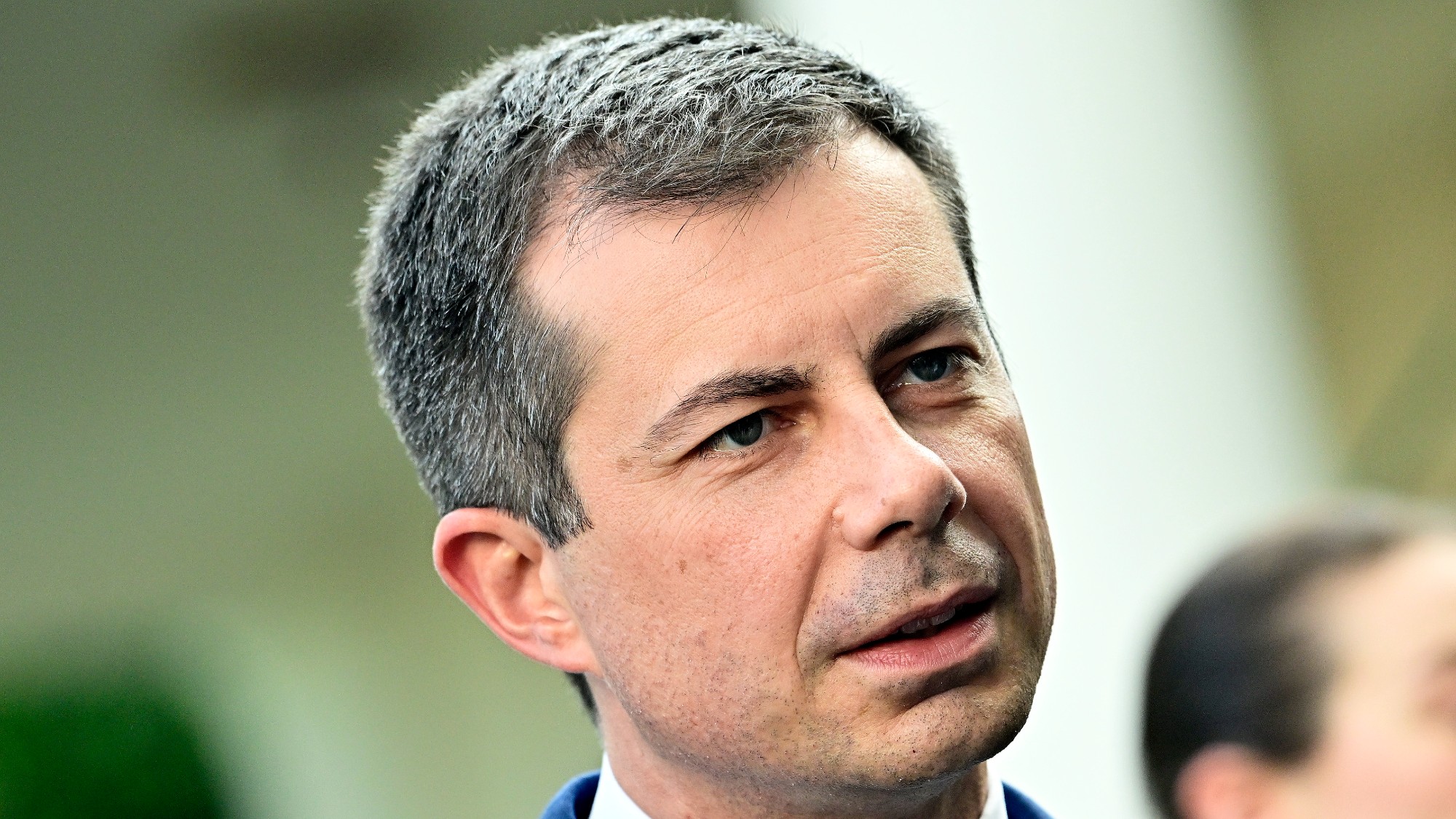Pete Buttigieg and the audacity of nope
You, sir, are no Barack Obama


A free daily email with the biggest news stories of the day – and the best features from TheWeek.com
You are now subscribed
Your newsletter sign-up was successful
The McKinsey Mayor has a plan: Copy the most successful Democratic politician of the last generation. If an inexperienced but inspiring young black man from Chicago could become president, why not an even less experienced, even younger gay man from Indiana? John McCormick reports for the Wall Street Journal reports that "it is Mr. Buttigieg among the top-tier candidates who is trying the hardest to mimic the former president’s campaign style."
There are just two problems. Pete Buttigieg is running a radically different campaign in a radically different time. Where the party's center of gravity was decidedly moderate in 2008, today it is deeply fissured between moderates and a resurgent left. Thus where the Obama campaign could plausibly both promise optimistic, sweeping change and run on moderate policies, the Buttigieg campaign is going straight for moderates by cynically blasting quality leftist policy like Medicare-for-all and tuition-free college with conservative rhetoric.
Despite his smiling persona, Buttigieg, like Amy Klobuchar, is all about falsely telling the American people what they can't have. Call it the audacity of nope.
The Week
Escape your echo chamber. Get the facts behind the news, plus analysis from multiple perspectives.

Sign up for The Week's Free Newsletters
From our morning news briefing to a weekly Good News Newsletter, get the best of The Week delivered directly to your inbox.
From our morning news briefing to a weekly Good News Newsletter, get the best of The Week delivered directly to your inbox.
Over the past few weeks Buttigieg has started several policy fights with the left. He attacked Elizabeth Warren over her support for Medicare-for-all, demanding to know how she would raise taxes to pay for it — despite the fact that he has still not fully costed out his own plans, which would certainly require at least several hundred billion per year in new taxes (though the campaign has said repealing Trump's corporate tax cut might pay for his health-care agenda). More importantly, Buttigieg failed to mention that his own plan would be more expensive on net than Medicare-for-all, because it would not have the same leverage over prices and would preserve much of the current duplicative and wasteful structure.
Most recently, Buttigieg has attacked Medicare with tendentious libertarian ideology about choice. "You’re not free if you don’t have health care," he said in a recent stump speech, "but you should have the freedom to choose whether you want it." By this view, non-universal Medicare increases choice and is hence better — but elides the fact that it would foreclose the choice of a complete system which covers everyone from cradle to grave, without exception. As usual, libertarian choice rhetoric obscures more than it reveals.
Now, this might sound somewhat familiar. Back in 2008, the major health care policy argument was whether the reform that would become ObamaCare should have an individual mandate. And Obama did cynically promise, Buttigieg style, that his plan would not need one, only to put it back in when it came time to pass the bill. But this was a narrow and technical point that only partly obscured that both candidates basically agreed about what needed to be done. Unlike Buttigieg, Obama was not running far to the right of a full-throated Medicare-for-all supporter.
Buttigieg's case against tuition-free college is just as bad. He would zero out tuition only for families making less than $100,000, and reduce it for families making between that and $150,000. His reason: "I have a hard time getting my head around the idea a majority who earn less because they didn’t go to college subsidize a minority who earn more because they did." This is utterly disingenuous, and politically poisonous. In fact, it is the ultra-rich who would pay for tuition-free college under both the Sanders and Warren proposals, with a financial transactions tax and a wealth tax respectively.
A free daily email with the biggest news stories of the day – and the best features from TheWeek.com
As historian Eric Rauchway points out, tuition-free college was also the actual reality for most public American colleges for over a century — just the kind of universal program that boosted citizen solidarity and fellow feeling. Indeed, back in 1974, Fred M. Hechinger predicted that then-new tuition fees "threaten to turn higher education into an instigator of class warfare," because if the "children of the [poor] are encouraged to attend college tuition‐free or even on a subsistence subsidy — as they ought to be — then hard‐pressed middle‐class families are likely to react in anger and political vindictiveness."
That is pretty much exactly what happened, as middle- and upper-middle class families with young children now have to scrimp and save for decades to have a chance at affording college — or their kids end up saddled with gigantic student loan debt, or both. Now Buttigieg is exploiting that class divide, using education policy that absolutely would benefit the overwhelming majority to drive a wedge between the middle and working classes. "[W]here I come from, three out of four people don’t have a college degree," he said recently. "And if the message we’re sending to them is that you need a college degree in order to get by in life … we’re leaving most Americans out."
The major concrete effect of this duplicity, of course, would be to protect the top 1 percent from taxation, and make post-secondary education more expensive for people not terribly far up the income ladder.
In the 2008 primary, just like health care, Hillary Clinton and Obama basically agreed with the since-abandoned education reform consensus, and it barely came up during the debates. Unlike Buttigieg, Obama was not running far to the right of a free tuition supporter.
Buttigieg's cynical moderation is reflected in his demographic support, which comes overwhelmingly from older whites. Every supporter quoted in the Wall Street Journal article is over 58. Where Obama racked up tremendous margins among the young and minorities with his energetic charisma, the ongoing Morning Consult poll finds that nearly 90 percent of Buttigieg supporters are white, 59 percent over 55, and 35 percent over 65. Just 6 percent of his supporters are black, and 8 percent between 18-29. The famed Obama coalition it is not.
In retrospect, one can see a great deal of cynicism in the Obama campaign of 2008, especially in his subsequent treatment of homeowners. But partly because his presidency was a disappointment, you can no longer promise "hope and change" without actually backing it up with genuinely aggressive policy.
Buttigieg might be rising in the polls with his elderly coalition, but he'll never recapture that Obama magic.
Ryan Cooper is a national correspondent at TheWeek.com. His work has appeared in the Washington Monthly, The New Republic, and the Washington Post.
-
 How Democrats are turning DOJ lemons into partisan lemonade
How Democrats are turning DOJ lemons into partisan lemonadeTODAY’S BIG QUESTION As the Trump administration continues to try — and fail — at indicting its political enemies, Democratic lawmakers have begun seizing the moment for themselves
-
 ICE’s new targets post-Minnesota retreat
ICE’s new targets post-Minnesota retreatIn the Spotlight Several cities are reportedly on ICE’s list for immigration crackdowns
-
 ‘Those rights don’t exist to protect criminals’
‘Those rights don’t exist to protect criminals’Instant Opinion Opinion, comment and editorials of the day
-
 The billionaires’ wealth tax: a catastrophe for California?
The billionaires’ wealth tax: a catastrophe for California?Talking Point Peter Thiel and Larry Page preparing to change state residency
-
 Bari Weiss’ ‘60 Minutes’ scandal is about more than one report
Bari Weiss’ ‘60 Minutes’ scandal is about more than one reportIN THE SPOTLIGHT By blocking an approved segment on a controversial prison holding US deportees in El Salvador, the editor-in-chief of CBS News has become the main story
-
 Has Zohran Mamdani shown the Democrats how to win again?
Has Zohran Mamdani shown the Democrats how to win again?Today’s Big Question New York City mayoral election touted as victory for left-wing populists but moderate centrist wins elsewhere present more complex path for Democratic Party
-
 Millions turn out for anti-Trump ‘No Kings’ rallies
Millions turn out for anti-Trump ‘No Kings’ ralliesSpeed Read An estimated 7 million people participated, 2 million more than at the first ‘No Kings’ protest in June
-
 Ghislaine Maxwell: angling for a Trump pardon
Ghislaine Maxwell: angling for a Trump pardonTalking Point Convicted sex trafficker's testimony could shed new light on president's links to Jeffrey Epstein
-
 The last words and final moments of 40 presidents
The last words and final moments of 40 presidentsThe Explainer Some are eloquent quotes worthy of the holders of the highest office in the nation, and others... aren't
-
 13 potential 2028 presidential candidates for both major parties
13 potential 2028 presidential candidates for both major partiesIn Depth A rare open primary for both parties has a large number of people considering a run for president
-
 The JFK files: the truth at last?
The JFK files: the truth at last?In The Spotlight More than 64,000 previously classified documents relating the 1963 assassination of John F. Kennedy have been released by the Trump administration
